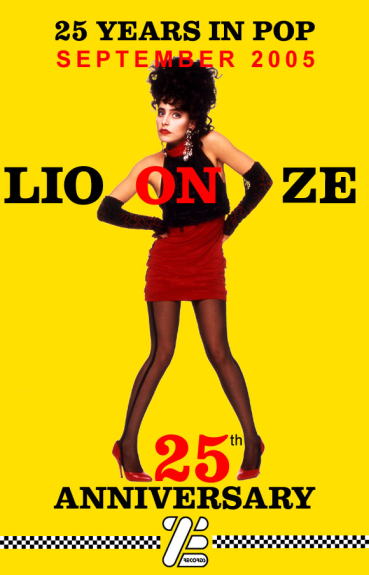| Something's been nagging at me about that panel of talks on Leslie Scalapino at the Poetry Project, to which I alluded, in passing, a few entries back. I won't attempt to reconstruct the overall argument of Brenda Iijima's talk, but at some point she appealled to some recent psychological research suggesting that the brain activity of someone observing a motor action is very similar to that of someone performing such an action. I don't want to put words into Iijima's mouth by saying that this was supposed to show that the distinction between one's own agency and another's is spurious, but that seemed to be the direction things were headed. I don't have a view on whether that's true, or shown by the research, and I'm not sure I even understood exactly how it's reflected in Scalapino's work; my worry is more general. I have serious doubts about the strategy of vindicating a poetics via the claim that it reflects or embodies a materially correct account of some aspect of cognition (or perception, or what have you). For one thing, since "our best science," as they say, is constantly being revised, what happens if the psychologists are wrong on the relevant point, or its interpretation? Would that vitiate the poetry as well? I'd wager that hardly anyone for whom poetry counts as a mode of inquiry would care for that conclusion. It doesn't seem that we're all that far from those maddeningly ahistorical/acultural New Formalist claims that, e.g., we're hardwired to respond somatically to iambics -- which claims are then used as a stick to beat alternative, "unnatural" prosodies. I'm caricaturing (not much, though -- what's Mike Snider been up to?), but you get the point. It seems far more fruitful, especially as far as avowedly experimentalist (and maybe even activist) poetries are concerned, to suppose that these might be valued as modeling modes of cognition (or, in a very broad sense, "representation") that might be useful or otherwise salutary in our efforts to interpret and affect our experience/"the world" -- whether or not these modes also match up with "how the brain works." Taking this line, I freely admit, probably commits you to believing that the cultural sphere has some degree of autonomy from, say, the neurobiological one. But if there's a whiff of idealism to this view (and that's a big "if"), I think on balance I'll take the trade, as against the instrumentalism of the apparent alternative. [To avoid confusion: I admire Brenda Iijima's writing -- I'm mainly familiar with the chapbook In A Glass Box. And Leslie Scalapino's: I've tended to filter my understanding of her project through a comment I once heard her make, to the effect that she wanted her work to be "oppositional all the way down," which I take to mean: at the levels (at least) of genre, rhetoric, syntax, and signification. Now, as I understand language, this goal may actually be impossible to achieve -- which wouldn't make it any less fruitful, as an asymptote or horizon.] |
fjb, local currency: solo 1992-1998 (fayettenam)
the human hearts, civics (tight ship)
nothing painted blue, taste the flavor (shrimper)
info on older band and solo work; I have no idea who compiled the scarily complete discographies
official site
free music, discography, etc. here
recently
- Less important than the weather
- FLAG PIN
- "Pussy Riot" (detail; acrylic on canvas) by Jea...
- The February House, The Public Theater, 5/18/12
- Wonderful Town, Gallery Players, 5/12/12
- Matthew Welch, Borges and the Other, Roulette, 5/1...
- Guy de Cointet, Espahor Ledet Ko Uluner! and Five ...
- coo-coo rockin' time
- reading and releases
- agitourism
the archive
- 09/01/2006 - 10/01/2006
- 10/01/2006 - 11/01/2006
- 11/01/2006 - 12/01/2006
- 12/01/2006 - 01/01/2007
- 01/01/2007 - 02/01/2007
- 02/01/2007 - 03/01/2007
- 03/01/2007 - 04/01/2007
- 04/01/2007 - 05/01/2007
- 05/01/2007 - 06/01/2007
- 06/01/2007 - 07/01/2007
- 07/01/2007 - 08/01/2007
- 08/01/2007 - 09/01/2007
- 09/01/2007 - 10/01/2007
- 10/01/2007 - 11/01/2007
- 11/01/2007 - 12/01/2007
- 12/01/2007 - 01/01/2008
- 01/01/2008 - 02/01/2008
- 02/01/2008 - 03/01/2008
- 03/01/2008 - 04/01/2008
- 04/01/2008 - 05/01/2008
- 05/01/2008 - 06/01/2008
- 06/01/2008 - 07/01/2008
- 07/01/2008 - 08/01/2008
- 08/01/2008 - 09/01/2008
- 10/01/2008 - 11/01/2008
- 11/01/2008 - 12/01/2008
- 12/01/2008 - 01/01/2009
- 03/01/2009 - 04/01/2009
- 04/01/2009 - 05/01/2009
- 05/01/2009 - 06/01/2009
- 06/01/2009 - 07/01/2009
- 09/01/2009 - 10/01/2009
- 10/01/2009 - 11/01/2009
- 12/01/2009 - 01/01/2010
- 01/01/2010 - 02/01/2010
- 04/01/2010 - 05/01/2010
- 07/01/2010 - 08/01/2010
- 08/01/2010 - 09/01/2010
- 09/01/2010 - 10/01/2010
- 04/01/2011 - 05/01/2011
- 08/01/2011 - 09/01/2011
- 09/01/2011 - 10/01/2011
- 10/01/2011 - 11/01/2011
- 12/01/2011 - 01/01/2012
- 05/01/2012 - 06/01/2012
- 08/01/2012 - 09/01/2012
- 10/01/2012 - 11/01/2012
11.29.2006
11.28.2006
11.25.2006
it's the economy
 Accomplishing in under three minutes what took Sofia C. over two hours: "Marie Antoinette," (play above; d/l here) by Wanda Riberio de Vasconcelos, a.k.a. Lio. Fans of the Belgian/Portugese yeye/new wave nymphet (eventually to become, let us note, a respected actress in the likes of Chantal Ackerman's The Eighties) will recognize that the music derives in all essentials from her signature hit, 1980's "Banana Split," itself a nod to the "innocent" orality of France Gall's Gainsbourg-penned "Les Sucettes." Two years later, for the recently reissued Suite Sixtine, writer/producers Eric Dierks-Hagen, Jacques Duvall and Jay Alanski commissioned English lyrics (not translations, per se) to her earlier singles from Sparks' Ron and Russell Mael, just then in their marvelous Whomp That Sucker/Angst In My Pants phase. The brothers' peculiar variety of blank irony is evident on several tracks ("Clothes; they're worn most every place"), but the one posted is the most entertaining by some distance. Yes, the lyric is a bit tossed-off , but this is somehow as it should be, and the glancing references to Acapulco, Argentina, and Pasadena (very KROQ, that) as possible sites of asylum make up for the lazy "head"/"head" rhyme. Is there a term for the spatial equivalent of anachronism? |
11.21.2006
the fate of the diaristic
| "The only thing we have words for are appearances." -- Rod Smith, Leslie Scalapino panel, Poetry Project, 11/11 "History doesn't happen to animals." -- Rodrigo Toscano, same Thought something interesting might come out of seeing Borat (2006, Larry Charles) and Zidane, un portrait du 21e siecle (2006, Douglas Gordon and Phillippe Parreno) on the same day, but the NY premiere of the latter (at MoMa) was sold out well in advance. Also missed, on account of various conflicts, Rivettes I may never see in Queens. "You do not need emotions if you order the Song In Your Head service." --Heriberto Yepez, "A Brochure on Futureless Science Fiction Poetics," The Recluse 2 "An unusual person founded the New Town movement." -- Martha E. Munzer and John Vogel Jr., New Towns: Building Cities From Scratch Lucille Ball: "You know what I always say?" Allan Lane: "No." Lucille Ball: "That's right." -- Panama Lady (1939, Jack Hively) Nicely Nicely (Eugene Palette): "A fat guy's always listenin' to a lot of stories, but he ain't ever got any to tell." -- The Big Street (1942, Irving Reis) Attempted to walk across Central Park to vicinity of the Whitney, managed to turn myself around and end up on the same side I'd started on, just five blocks down. Gave up on the derive, took a cab, perused the Albers/Moholy-Nagy and Kiki Smith shows. "A pony has a phone." -- Jacqueline Waters, "A Ploy," Zinc Bar 11/13 "Lame as fast words." -- Laura Mullen, Murmur book party, Teachers & Writers, 11/14) "No one knows what the city of the future will look like." -- translated (and possibly slightly paraphrased) subtitle, Two or Three Things I Know About Her (Jean-Luc Godard, 1966) Sighted Robyn Hitchcock (checked shirt clinching i.d.) after midnight in Westside Market, B'way near 76th. Didn't see what he was buying. Fairly certain I saw Cyndi Lauper a day or two later, leaving a car park three blocks further north. Looked grim, trailed by (I'm guessing) husband and child. "Despite a lot of literature which promises clarity on the future, none of us can really see or know what the future will bring or what will be the future of cities." -- Holger Magel, "About the Future of Cities," The Future of Cities, United Nations Human Settlements Programme, 2003 MoMa, again: the snakes of color in Brice Marden's newest paintings strongly resemble one particular Moholy-Nagy, of which I was not allowed to take a picture. It looks to me as though Marden substitutes an illusionism of mobility for one of depth; all told, I was more taken with "Eye On Europe," a wide-ranging exhibition of multiples and ephemera that inclued a modest selection of Ian Hamilton Finlay cardworks. Finally remembered to remember the name (Gerald Murphy) of the painter of Wasp and Pear, stuck in a hallway and noted with pleasure every time I pass it; discovered that John Latta (no permalink; scroll down to Nov. 15) had posted on him just days before. "Spools in the airport's slot/machine painted solid black." -- Johanna Furman, "How Jejune Is This Apocalypse, Hon?" Ugh Ugh Ocean Bree reports that, a few days before my return, she was approached by another Scientologist (we think) asking about her reading habits, somewhere in the Valley. Said she didn't read fiction at all, which was true and ended the conversation. "Fucking leaves everything in place." -- Maggie Nelson, "Bluette," The Smell, 11/18 "willing to die for a great last line" -- Geoffrey Young, "Grail Fabric," Fickle Sonnets |
11.17.2006
you make my record skip...
| I just realized that the physical CD which bears the remixer's name is in a CD wallet currently being sent to me from a hotel in South Carolina, but I wanted to post this chopped version of Kelis' "Bossy" anyway because, first, how often am I gonna be the guy to bring you a track off a barely-labeled disc sitting next to the register at a gas station an hour outisde of Houston?, and second, as an excuse to mention that I enjoyed Kelis Was Here (the official/full-speed version, that is) more than most things I heard on tour. I come to it in relative ignorance, past a few well-known hits: I get that the career (persona) arc so far has been, in broad outline, quirky --> freaky, but I have never heard the lauded first 2 discs and shelved Tasty as padded (all of which I plan to rectify, though I'm pretty sure I just don't like "Millionaire"). In other words: the Neptuneslessness doesn't mean much to me. So what do I like? The studied rawness of several of her vocal approaches, which are varied across the album (and sometimes within a songs); which helps the album hang together in a manner I associate with Prince; the way that "What's That Right There" is almost explicitly an exercise in rewriting "My Humps" with greater economy; that, in a climate where much heavy-breathing R&B just gives me the giggles, "Blindfold Me" (by outside writers but tailored to K. and her popular thug) at least makes me want to fan myself a bit; the opaque mix of "Appreciate Me," which, were we to continue to name production techniques for Waffle House hash-brown styles, would be termed "smothered"; the balance between hott/sassy tracks ("Handful") and spacy/pretentious ones ("Trilogy"). Negatives: "Circus," on the fakeness of the biz, is both a bad song and a bad sign; the songs that are all "I also like rock" (glam-rock, at that) don't convince. But the demo-studio-sounding bonus track, I can't get enough of: jabby Mick Jones gtr riff obliquely intersected by a keyboard line and a number of vocal hooklets, stitched into a song form I've yet to wholly untangle. Actually, hearing the screwed version helps; I think I'll post that too. |
11.15.2006
11.13.2006
correspondence and coherence
 Saturday, at Scritti Politti's instore in the cafe behind Williamsburg's Sound Fix, Green didn't sport a red Strat bearing a huge sticker reading "PHILOSOPHY," as he did at Bowery Ballroom the previous night, but he did employ Isiah Berlin's (via Archilocus) fox/hedgehog typology in reference to Dave, his utility player/keeper-of-the-lyric-sheets. But playing spot-the-allusion with the banter (or even the songs), fun as it is for a fan of my background, isn't exactly insightful -- no more so, anyway, than telling you that he apologized for his voice even more often Saturday than Friday, and with equally little audible reason, or noting that if I thought I could find a drummer like this band's down the pub, I'd develop a taste for bitter, but quick. I will say that, as one who just got off tour with a guy who really wants to play recent, mostly introspective material in front of crowds who are shouting for -- depending on the case -- "Perfect Way" or "Going to Georgia," I had no problem with the light-on-oldies program. (Of course, actually loving the new songs doesn't hurt.) At this point in Green's career, there's no question of besmirching the legacy; in different ways, Provision (which I fully intend to revisit) and Anomie & Bonhomie already have. Still, White Bread Black Beer and (especially) the accompanying tour feel like the best sort of gratuitous acts. The man's demonstrably a perfectionist (and, qua bandleader, a benevolent despot -- not a lot of wiggle room in those arrangements), seemingly a touch pained by even the small divergences and spontaneities any live show entails. So the fact that he was game for an extra, unpaid, promotionally unnecessary show -- with the whole band, but about half the gear and a fairly primitive P.A. -- made at least one song sound as though he had to remind himself of something: "Never play your cards and you'll never lose the bet/Standing on the corner of the road to no regret." Yeah, we can have a ball referring the underlying metaphor back to more highly theorized notions of risk or excess, or playing it against the conception of capitalist conversation and speculation as a casino economy (see also "The Gambler" and The Mekons' "Gin Palace." But really, it's hardly the cleverest or most critical line Double-G's ever penned; just one of the more practical. |
11.08.2006
11.07.2006
live free or diebold
11.06.2006
called careers information...
 As one who thinks that just about the only thing the Kerry campaign did right in 2004 was quote Langston Hughes (even if -- or because -- someone forgot to read the whole poem), I can't muster much surprise at the speed with which "the loyal opposition" capitulated to demands, as much from within his party as without, that he apologize immediately for placing class (in the guise of education) on the table, however briefly and -- if the version where he misread his scripted remarks is to be believed -- inadvertently. As one who thinks that just about the only thing the Kerry campaign did right in 2004 was quote Langston Hughes (even if -- or because -- someone forgot to read the whole poem), I can't muster much surprise at the speed with which "the loyal opposition" capitulated to demands, as much from within his party as without, that he apologize immediately for placing class (in the guise of education) on the table, however briefly and -- if the version where he misread his scripted remarks is to be believed -- inadvertently. Which still leaves the question: if it's so offensive and inaccurate to suggest that the relationship among an individual's educational background, economic prospects, and career opportunities is such as to have a bearing on that individual's decision to enlist in this country's [formally] volunteer military, why does the recruitment literature I come across -- in a BP/Subway between Springfield, MO and Sweetwater, TX, say -- seem more pragmatic than patriotic? Which still leaves the question: if it's so offensive and inaccurate to suggest that the relationship among an individual's educational background, economic prospects, and career opportunities is such as to have a bearing on that individual's decision to enlist in this country's [formally] volunteer military, why does the recruitment literature I come across -- in a BP/Subway between Springfield, MO and Sweetwater, TX, say -- seem more pragmatic than patriotic? |
11.03.2006
11.02.2006
walk into it like it's yours
| I always promised myself that if I ever fooled around with mp3 posting, this would be the inaugural track. "Shake Your Fat Fanny" is a rent party piano solo from 1929, and -- according to the notes to Shake Your Wicked Knees (Yazoo) -- the only recording credited to elusive St. Louis player Jim Clarke. Too bad: I've seen this described as a variant of "Pinetop's Boogie," but the delicate intra-stomp sections have a feel of their own. I'm not qualified to claim that performances of this sort were the first dance-instructional songs in American popular music -- but I'd like to imagine that this one contains the first recorded use of the phrase "Get up offa that thing." "Sally Long," by the way, may be derived from the minstrel song "(Miss) Lucy Long" -- in any case, it's a dance I wouldn't mind knowing how to do. Oh: When I do this, I'll probably leave the songs up for 2 to 3 weeks, or however long my bandwidth at BlogAmp allows. (And props to Poplicks for the app.) Update: Autoplay disabled in favor of voluntary download by request. |





